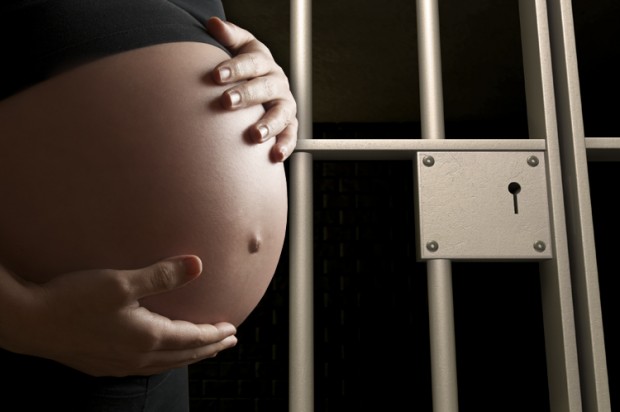An extensive study on access to reproductive healthcare for women in New York’s prisons found the system to be “woefully substandard,” often denying women adequate food and supplements during their pregnancies, limiting women’s ability to see doctors and placing pregnant women in solitary confinement, among other problems. And, on the issue of shackling pregnant women, the report found multiple cases in which prisons acted in direct violation of state law by putting pregnant women in restraints en route to the hospital, during labor and immediately after giving birth.
Shackling is the use of handcuffs, ankle shackles and waist restraints to restrict movement of the hands, arms and legs. A measure banning the shackling of pregnant women who are incarcerated during transport to and from the hospital, labor and and as the woman recovers post-delivery passed in 2009, receiving unanimous support in the Senate and a strong majority in the Assembly. And yet the report found that due to uneven enforcement and a lack of awareness of the law, shackling persists.
More from the report released by the Women in Prison Project of the Correctional Association of New York (emphasis mine):
DOCCS is out of compliance with New York State law that bans the shackling of incarcerated women during childbirth: 23 of 27 women the CA surveyed who gave birth after the law went into effect said they were shackled at least once in violation of the statute. While DOCCS has made progress in curtailing the use of restraints after women arrive at the hospital until they give birth, women continue to be shackled on the way to the hospital (even when they are in labor), during recovery (even within hours after giving birth and for long periods of time), and on the way back to the prison (even with waist chains just days after having a C-section). In addition, every woman the CA heard from was shackled when she went on trips outside the prison during her pregnancy. Women described their experiences with shackling as “painful,” “horrible” and “degrading.”
Jacqueline McDougall, who was incarcerated at the Bedford Hills Correctional Facility while pregnant, was shackled during her return trip to the prison after undergoing an emergency cesarean section. Her wrists were cuffed and linked to a chain that was wrapped around her waist, brushing up against her incision. “With the weight on the stomach,” she told the New York Times in 2014, “it felt like they were ripping open my C-section.”
Another woman quoted in the report said that the restraints she was forced to wear on her return trip from the hospital prevented her from comforting her newborn son. “[M]y son was screaming and I couldn’t do anything about it,” she said. The report quotes another woman who faced the same experience. “The black box is the biggest problem … They pull it real tight so that you can’t use your hands, even with the baby … There should be no shackling and no black box. Where are you going to run to?”
The Correctional Association points to a lack of oversight on enforcement as among the reasons the practice is still happening despite being banned. In a list of recommendations, the report calls on the New York State Department of Corrections and Community Supervision to train security and medical staff on the law, as well as inform pregnant women of the law. The group also calls for an expanded ban on shackling during all stages of pregnancy.
“Having a law on the books is just one part of the picture,” Tamar Kraft-Stolar, the author of the report and the director of the association’s Women in Prison Project, told NPR News on Thursday.

